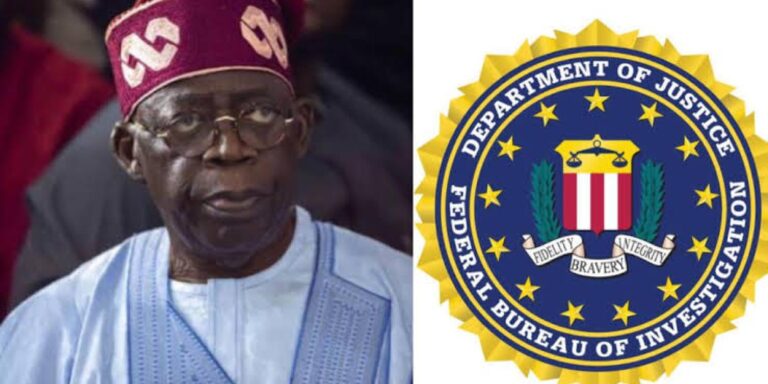everal United States government agencies, including the Federal Bureau of Investigation (FBI) and the Department of State, are expected to release investigation reports on Friday, May 2, relating to an alleged drug-related case involving Nigerian President Bola Tinubu in the 1990s.
The disclosure follows a ruling by the U.S. District Court for the District of Columbia, ordering the agencies to make public documents that had been the subject of a Freedom of Information Act (FOIA) lawsuit filed by American activist and transparency advocate Aaron Greenspan.
In addition to the FBI and State Department, other agencies expected to comply with the court order include the Internal Revenue Service (IRS), the Drug Enforcement Administration (DEA), the U.S. Attorneys’ Offices, and the Central Intelligence Agency (CIA).
The presiding judge, Beryl Howell, issued the order earlier this month, declaring that the continued withholding of the requested records is “neither logical nor plausible.”
“This is a win for government transparency and the public’s right to know,” said Greenspan, who filed the lawsuit in June 2023.
“The American and Nigerian people deserve to know the full history of any prior investigations involving a sitting foreign president.”
Greenspan’s suit alleges that the agencies violated the FOIA statute by failing to release documents within the required timeframe.
He specifically sought information regarding alleged federal investigations into President Tinubu and three other individuals: Lee Andrew Edwards, Mueez Abegboyega Akande, and Abiodun Agbele—individuals said to be associated with a purported drug trafficking ring in the 1990s.
According to court filings, Greenspan submitted 12 FOIA requests between 2022 and 2023 to six different federal agencies, including the FBI and DEA.
The requests targeted records connected to investigations by U.S. Attorneys in the Northern Districts of Indiana and Illinois, jurisdictions where Tinubu reportedly lived and operated in the late 1980s and early 1990s.
Though some redacted documents have surfaced in recent years, many of the requested files have remained classified, fueling speculation and debate, particularly in Nigeria where questions around President Tinubu’s past have long stirred controversy.
President Tinubu has repeatedly denied any involvement in drug trafficking or wrongdoing.

